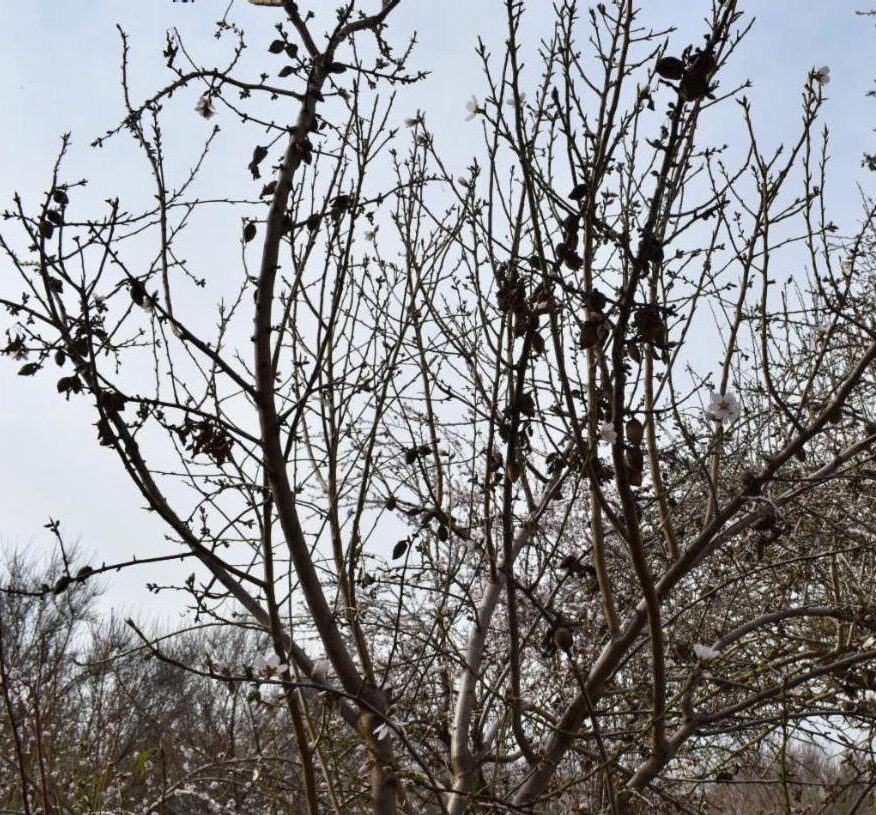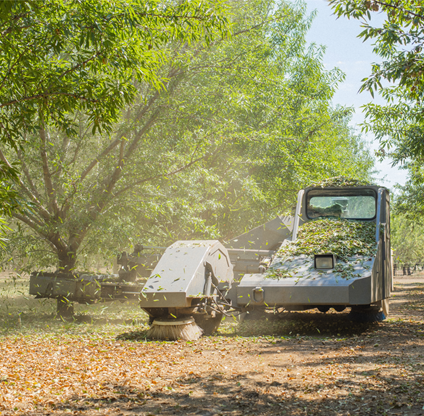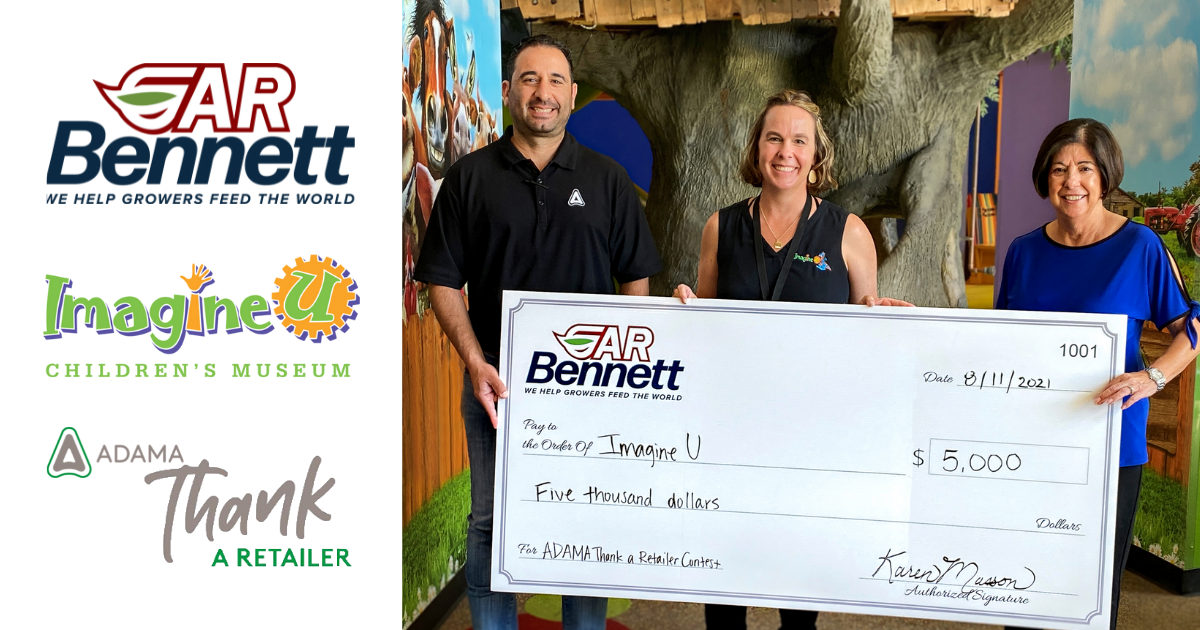
GET TO KNOW NICK HASTIN, GAR BENNETT PCA
CROP PROTECTION
Almonds: Check your days to harvest and consult with your GAR Bennett PCA on second or third applications for navel orangeworm (NOW). The heat delayed the timing of this year’s applications. This is also a good time to collect hull samples to get a look at your boron levels as well as soil samples to plan your post-harvest program.
Citrus: We are still monitoring for thrips in young trees and citricola scale in some blocks. Those planning on exporting to Korea should be in close contact with their GAR Bennett PCA and packing house on products to use for fuller rose beetle. The first of two fuller rose beetle sprays required for Korea export need to be done by the end of August. Most growers who needed it have finished up the second flight of red scale and we are in the middle of a third hatch. This hatch has previously created big blow ups during September. Make sure to closely monitor your blocks for late scale activity as it may be your last opportunity to clean up blocks before harvest.
Grapes: Harvest has started in the earlier varieties for wine, table and raisin grapes. As harvest grows near for the later varieties, consult your GAR Bennett PCA for any bunch rot issues. We are nearing the end of mite pressure however, as each week goes by, the potential for mealybug damage to occur increases. Mealybugs thrive in shady areas of the vine and grow their populations, creating a mess on the grapes. High ant activity may be a good indication that mealybugs are a problem in the field. Consult your GAR Bennett PCA on any late potassium applications to increase Brix levels in later varieties and be ready to discuss post-harvest fertilizer applications.
Stone Fruit: Continue to monitor and be diligent for oriental fruit moth (OFM) and peach twig borer populations as well as brown rot. Late varieties of peaches, nectarines and plums are being harvested. We are continuing our pre-harvest treatments and keeping a watchful eye on the orchard for fruit decay and insect pressures. With the high temperatures, be sure to continue to keep an eye out for mites. Now is a good time for growers to be preparing their post-harvest fertilizer programs. Consult your GAR Bennett PCA about taking tissue samples to assess field needs for these programs.
Cherries: Summer pruning is wrapping up. As we fight the summer heat, we are continuing to apply sunburn protection and clean up weeds. Consult your GAR Bennett PCA on boron and zinc sprays in the coming months to help ensure fruitful buds for next season as trees go into dormancy.
Pistachios: Growers are cleaning up orchard floors and getting ready for harvest. Hull split sprays are currently being applied. The crop load looks good this year across the Valley.
Walnuts: Growers are preparing for harvest. In the South Valley, some are spraying for NOW as well as keeping an eye out for mites. This is also a good time to pull soil samples and talk with your GAR Bennett PCA about post-harvest fertilizer programs. Walnut harvest will move fast this year due to the extreme heat and low levels of wildfire smoke, helping the nuts to dry. Some growers who are having to pump for water are seeing chloride damage.
Tomatoes: We are about 90% complete with harvest. Some fields with late fruit are being treated for armyworms and black mold.
Dehydrated Onions: Growing season is over for this crop and harvest will start in September.
Cotton: This crop is being treated for lygus. Some fields are being treated early for whitefly, aphid, and an isolated hatch of beet armyworms. Late August into September is usually when aphid and whitefly become a problem, consult your GAR Bennett PCA about treatment options.
Alfalfa Seed: Earlier fields have been harvested. Later fields have been desiccated and will be harvested in 3-4 days.

Photo Courtesy of Suterra ©2021 Mando Perez, PCA
MATING DISRUPTION
CROP NUTRITION
WATER SERVICES

WATER QUALITY & EFFICIENCY
Post-harvest nutrition for tree crops is vital to next season’s success. After harvesting, establishing proper soil health and applying adequate nutrients is key when trees are transitioning into the dormant period. With our ongoing drought conditions here in the Central Valley, dry fertilizers may not get the rain they need to be effective. Liquid fertilizers can solve this, but poor irrigation water quality can reduce the effectiveness of your fall fertilizer program. Water quality can be impacted by several factors, from bicarbonates tying up valuable nutrients, scale or iron causing clogging and lowering distribution uniformity (DU), or high salinity levels that could potentially reduce plant growth.
COMPLIANCE
WORKER SAFETY
FOOD SAFETY
WHAT’S HAPPENING

Thank you for your support and votes in helping GAR Bennett win ADAMA’s “Thank a Retailer” contest! The following are the recipients chosen to receive $18,000 in funds:
- $5000 – Kern County Farm Bureau Young Farmers and Ranchers – They will use these funds to help struggling 4-H clubs purchase animals and pay for entry show/fair fees.
- $5000 – Fresno Storyland – Storyland has a long history of promoting childhood literacy and will be using the grant to restore and improve McGregor’s Garden.
- $5000 – ImagineU Children’s Museum – These funds are to create an interactive “planting station” play area.
- $1000 – Fowler Malaga Ag Boosters – This gift will be used to help provide leadership training and entry fees for events.
- $1000 (each) – Madera County Farm Bureau Scholarship Fund and Tulare County Farm Bureau Scholarship Fund – These Farm Bureau Scholarship funds help support and advance young agriculturists to pursue higher education.




